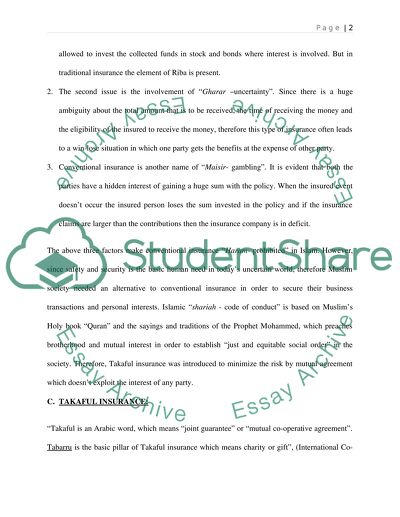Cite this document
(“Islamic Insurance Essay Example | Topics and Well Written Essays - 2500 words”, n.d.)
Retrieved from https://studentshare.org/law/1418742-islamic-insurance
Retrieved from https://studentshare.org/law/1418742-islamic-insurance
(Islamic Insurance Essay Example | Topics and Well Written Essays - 2500 Words)
https://studentshare.org/law/1418742-islamic-insurance.
https://studentshare.org/law/1418742-islamic-insurance.
“Islamic Insurance Essay Example | Topics and Well Written Essays - 2500 Words”, n.d. https://studentshare.org/law/1418742-islamic-insurance.


